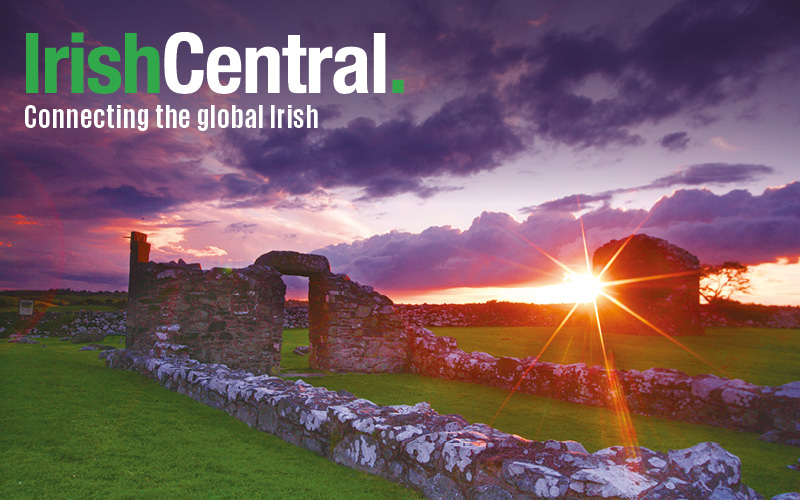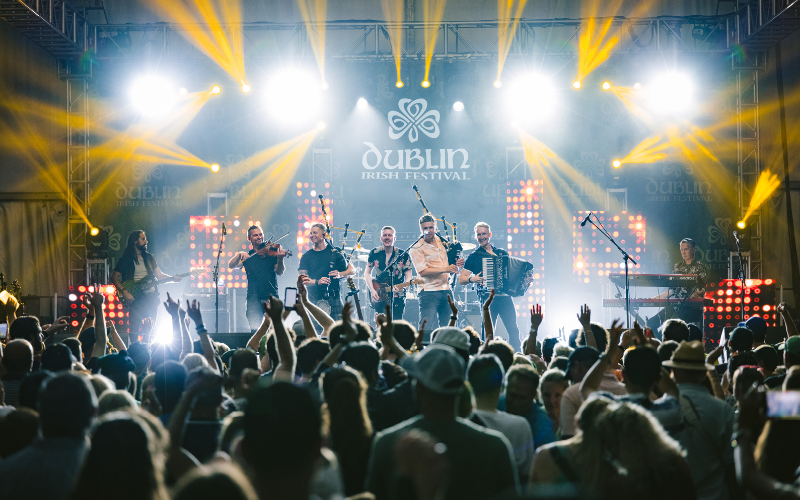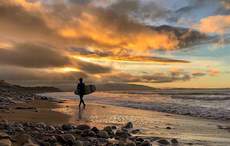IT'S a beautiful Sunday afternoon in the other Boston. That is the one that is behind the melting marshmallow shape of the sacred mountain of Mullaghmore in the Burren of Clare.
Far away down below me where I am hunkered beside a spring well from which the Stone Age men drank, the friends of the late Burren priest-philosopher John O'Donoghue are planting an oak tee in his memory. The sun glints on the tops of their parked cars, and they all look like small dots beneath the great mountain.
It is a day to take the words from you, a day of all the beauties and sadnesses and histories of this unique place.
Away to the left flank of the mountain, up near the peak, I catch a flicker of movement, and it is one of the herds of wild puck goats that frequent these airy highlands.
They are almost out of my vision, but I watch their fleeting wild bodies just as they cross the skyline, wild and free. Close up their strange mysterious eyes, all murky fire and mystery, somehow catch the equivalent spirit of this place.
I had passed through the group of mourners and rememberers 30 minutes earlier. It was such a bound group of O'Donoghue's friends, headed by his vivid mother, that I did not stop for more than a few minutes to exchange handshakes.
These were the people who risked everything, including their homes, to preserve Mullaghmore from government development about 15 years ago. The government wanted to build a heritage center for the mass tourist market in hard times when even the construction jobs involved were precious.
It was before the Celtic Tiger walked, but the band of brothers and sisters of the mountain, including John O'Donoghue, fought like feral tigers to prevent that. They risked everything in the highest courts of the land in a battle that split the communities around the foothills.
They won a mighty victory in the end. It was so total that even the carpark that the government had built was demolished and removed.
That's a win. The articulate voice and presence of O'Donoghue was at the center of the action.
A little later he wrote the million selling Anam Cara book, and his life journey took him away from the priesthood too. Earlier this year, in the happiest period of his life they tell me, he was on holiday in Spain and died suddenly of a heart attack.
He was due to get married later this year. It was not to be.
Now the small mourning dots were coming back to their cars having planted his oak tree. Down among them I knew my good friend P.J. Curtis, Pat McCormack, the incredible Lelia Doolin.
The mountain, wearing a blue shimmering heat veil, dwarfed them as totally as they had dwarfed the State in their battle.
Nearly on my knees beside the small silver-faced well I'd discovered accidentally on the Boston slopes I was thinking about the book Anam Cara and the mystery of it.
I'd always thought that it was a work of marvelous word skill in relation to nature but, for me, I never quite understood the message or philosophy in it. I kept looking in it, and in John's subsequent and similar works, for that spiritual message which others seemed to find so readily and with such enthusiasm that it sold millions of copies in many languages. I never quite found it.
"Where's the beef?" I kept asking myself as his marvelous language drifted me over the Burren and the Irish landscape generally. Maybe (though I don't think so) I was a little jealous somewhere that a simple priest I had known before he became famous was now a millionaire and a worldwide figure.
Thinking thoughts like that, I looked back into the well and wondered if some previous thirsty soul had left a drinking vessel there as in the old days. It used to be common.
There would be a blue-ringed mug without a handle, or a willow pattern cracked cup. Maybe even an enamel or tin mug.
There was a hank of greying grass near my right hand. I pulled it back and there - O there still is magic in this world - was a plain delph mug, white, and without a handle! There were two spiders in it and some dust and dried leaves as well.
I rinsed it out and drank deeply. The water was as pure as heaven itself. Cold, crisp, a little herbal even, subtle nuances of the wildness of the place.
I drank the second mug slowly and, do ye know this, maybe one of the fundamental messages of O'Donoghue entered me as well. I think he often wrote about the linkage between our mortal spiritualities, if you like, and the enduringly beautiful spirituality of a place like Mullaghmore, its waters and its plants and its animals, and the beauty of the establishment of a harmony between the two.
I don't quite have the words for it but something like that anyway. For a long while I just sat there in some kind of higher harmony, awed, silent, in total peace.
Far below the cars were dispersing. The evening aged a little, an early moon appeared high up in the sky, the sacred mountain donned a veil just two or three darker shades of blue. And an oak tree began it's first night of Burren growing.
I left the mug back where I found it, in exactly the same spot, and I went gently away with a light heart.
Does this make any sense at all?




Comments